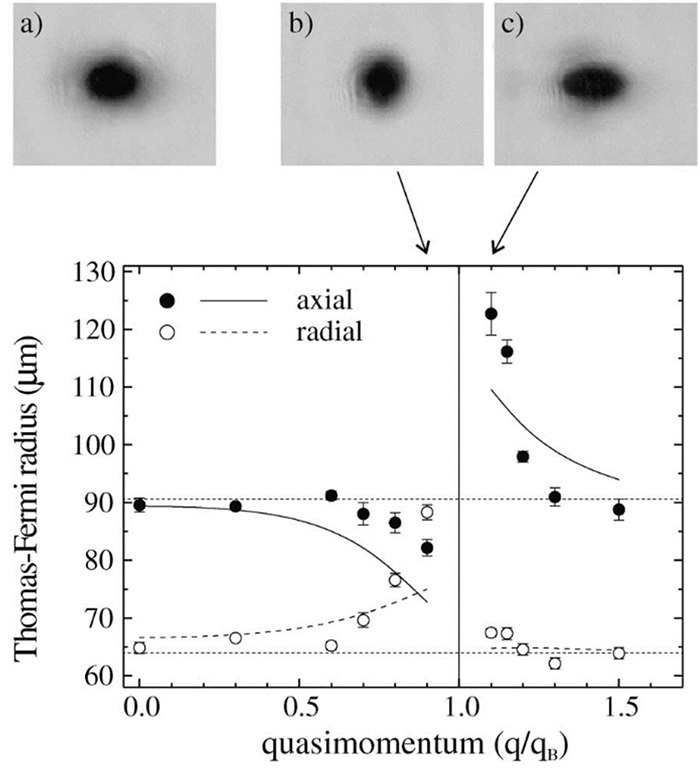 |
We report the experimental observation of a lensing effect on a Bose-Einstein condensate expanding in a moving 1D optical lattice. The effect of the periodic potential can be described by an effective mass dependent on the condensate quasimomentum. By changing the velocity of the atoms in the frame of the optical lattice, we induce a focusing of the condensate along the lattice direction. The experimental results are compared with the numerical predictions of an effective 1D theoretical model. In addition, a precise band spectroscopy of the system is carried out by looking at the real-space propagation of the atomic wave packet in the optical lattice. L. Fallani et al. |


In June 10th 1999, the Rubidium BEC1 apparatus produced the first italian Bose-Einstein condensate. We soon focused our activity on the study of a quantum gas of 87Rb bosons in optical lattices, investigating static and dynamic properties and enlightening the role of different kinds of instabilities. The last part of the activity was concentrated on the study of the superfluid to Mott insulator transition (also adding disorder and “quasi-disorder”) and on the physics of low-dimensional bosonic gases, characterized by measuring the excitation spectrum of these systems through inelastic light scattering. The BEC1 experiment retired in 2014 after 15 years of activity. We would like to thank all the people – students, technicians, and researchers – who have contributed to these exciting fifteen years of activity.
